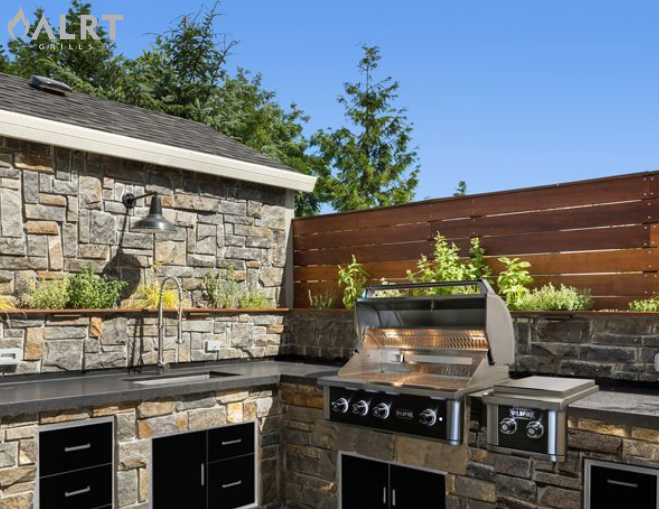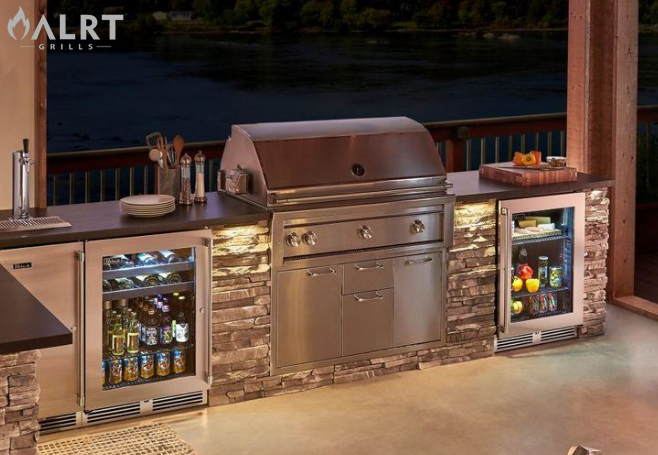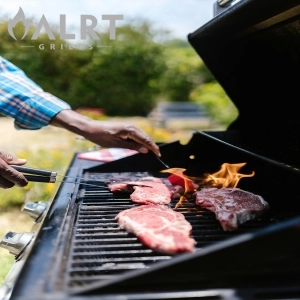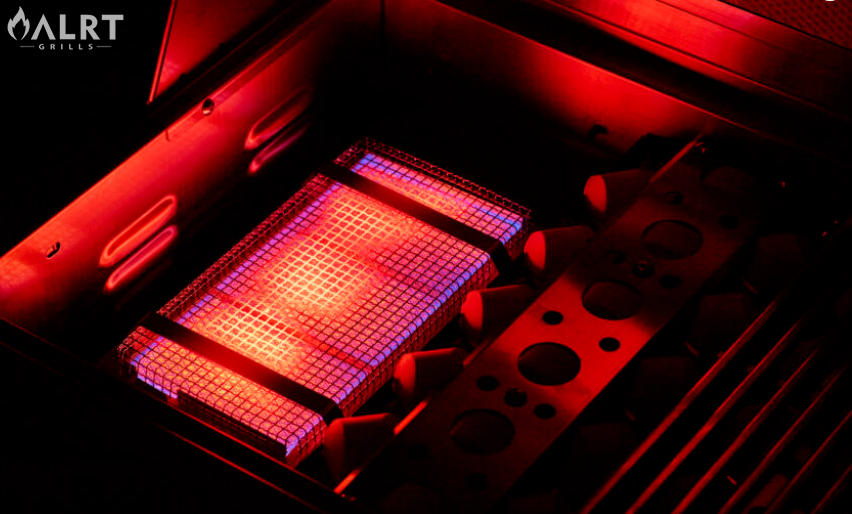The Choice Between Propane and Natural Gas Grills

The choice between propane and natural gas grills is a pivotal decision for homeowners and BBQ islands manufacturers alike. As a leading outdoor kitchen grill supplier, we understand that this debate extends beyond mere fuel preference—it impacts performance, design flexibility, and long-term value. Whether you’re building a custom outdoor kitchen island or sourcing wholesale BBQ islands, understanding these fuels’ pros and cons ensures optimal outdoor cooking experiences.
Performance Comparison: Heat, Control, and Convenience
Heating Speed and Temperature Control
Propane Grills: Deliver higher BTU output (up to 30,000 BTU), ideal for quick searing and high-heat cooking.
Natural Gas Grills: Provide consistent heat with lower BTU (typically 18,000–25,000 BTU), suited for slow-roasting and even grilling.
Fuel Accessibility
Propane: Portable tanks allow flexibility for outdoor BBQ grill setups in remote locations or mobile events.
Natural Gas: Requires a fixed gas line, making it ideal for permanent outdoor kitchen islands but limiting portability.
Temperature Precision
Natural gas grills excel in steady heat maintenance, while propane offers rapid adjustments—critical for dishes like reverse-seared steaks or smoked brisket.
Installation and Infrastructure Requirements
Propane Grills
Setup: Minimal infrastructure—just connect a portable tank. Perfect for compact gas grill setups on patios or balconies.
Drawbacks: Tanks require refills and storage space.
Natural Gas Grills
Permanent Installation: Requires professional gas line installation, often integrated into outdoor kitchen islands during construction.
Cost: Initial setup is pricier, but eliminates ongoing fuel procurement.
Cost Analysis: Initial Investment vs. Long-Term Savings
| Factor | Propane | Natural Gas |
|---|---|---|
| Initial Cost | $500–$2,000 (grill + tank) | $1,200–$4,000 (grill + installation) |
| Fuel Cost per Hour | $2.50–$3.50 | $1.20–$1.80 |
| Maintenance | Higher (tank replacements, regulator checks) | Lower (fixed lines) |
Verdict: Natural gas saves 15–25% in long-term fuel costs, ideal for high-volume users or wholesale BBQ islands suppliers.
Environmental Impact and Sustainability
Propane: Burns cleaner with fewer emissions but relies on non-renewable extraction.
Natural Gas: Lower CO2 per BTU but involves methane leakage risks during production.
Eco-Tip: Pair either fuel with energy-efficient burners (common in premium outdoor kitchen grills) to minimize waste.
Integration with Outdoor Kitchen Islands
For luxury outdoor spaces, natural gas is the gold standard:
Seamless Design: Built-in lines hide seamlessly within outdoor kitchen islands, enhancing aesthetics.
Functionality: Supports side burners, pizza ovens, and other modular accessories.
Commercial Appeal: BBQ islands manufacturers prioritize natural gas for hotels and resorts due to reliability.
Propane remains popular for modular setups, especially in regions lacking gas infrastructure.
Commercial Considerations for Wholesale BBQ Islands
Scalability: Natural gas lines simplify large-scale deployments for BBQ island wholesale projects.
Compliance: Ensure grills meet local gas codes—critical for commercial outdoor BBQ grill installations.
ROI: Hotels and caterers report 12–18 month payback periods with natural gas grills.
User Scenarios: Which Fuel Suits Your Lifestyle?
Choose Propane If:
You host mobile events or camp frequently.
Your outdoor kitchen island is in a rental property.
Choose Natural Gas If:
You grill 3+ times weekly.
You’re designing a permanent luxury outdoor kitchen grill space.
FAQs: Answering Common Grill Fuel Questions
Q1: Can I convert a propane grill to natural gas?
Yes, but it requires a conversion kit and professional installation to ensure safety.
Q2: Which fuel is better for cold climates?
Propane performs better in low temperatures, as natural gas lines may freeze.
Q3: How often do propane tanks need replacement?
A standard 20-lb tank lasts 18–20 hours of grilling.
Q4: Are natural gas grills eligible for commercial warranties?
Most BBQ islands manufacturers offer extended warranties for commercial-grade units.
Q5: Which fuel is safer?
Both are safe when handled properly, but natural gas eliminates tank storage risks.
Conclusion
The propane vs. natural gas debate hinges on your grilling habits, infrastructure, and design goals. For permanent outdoor kitchen islands, natural gas offers unmatched convenience and cost savings. Propane shines in portable and flexible setups. As a trusted outdoor BBQ grill supplier, we recommend evaluating your needs with our experts to craft the perfect solution.

 English
English Italian
Italian Russian
Russian German
German Arabic
Arabic Spanish
Spanish





